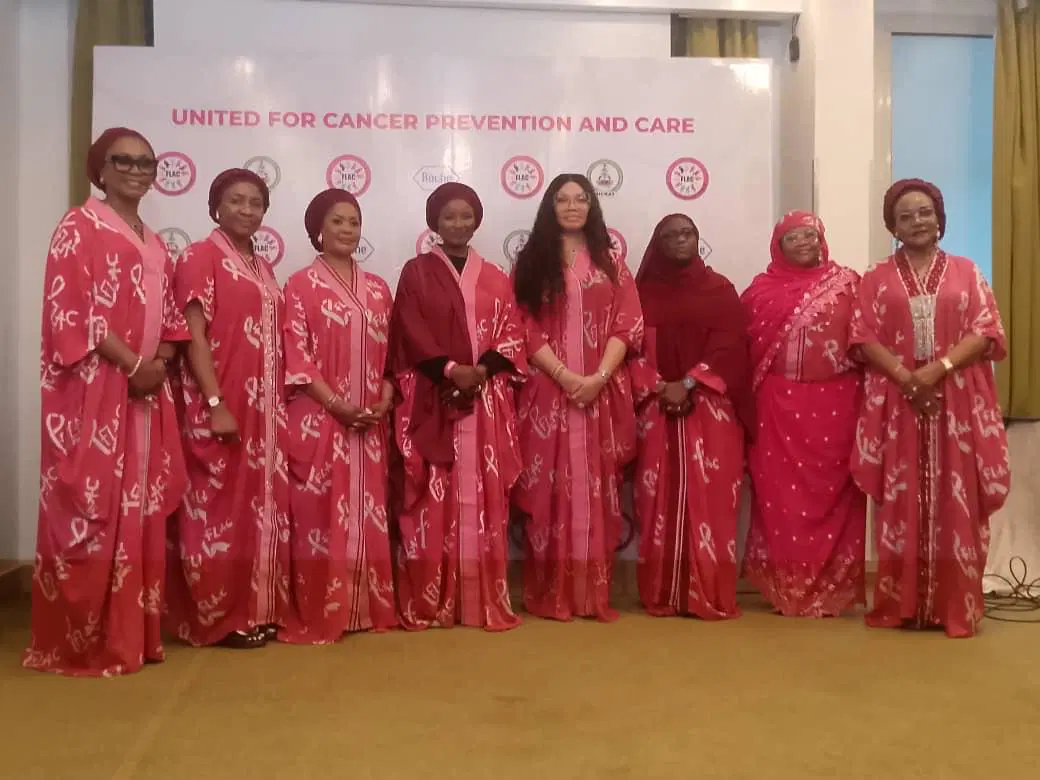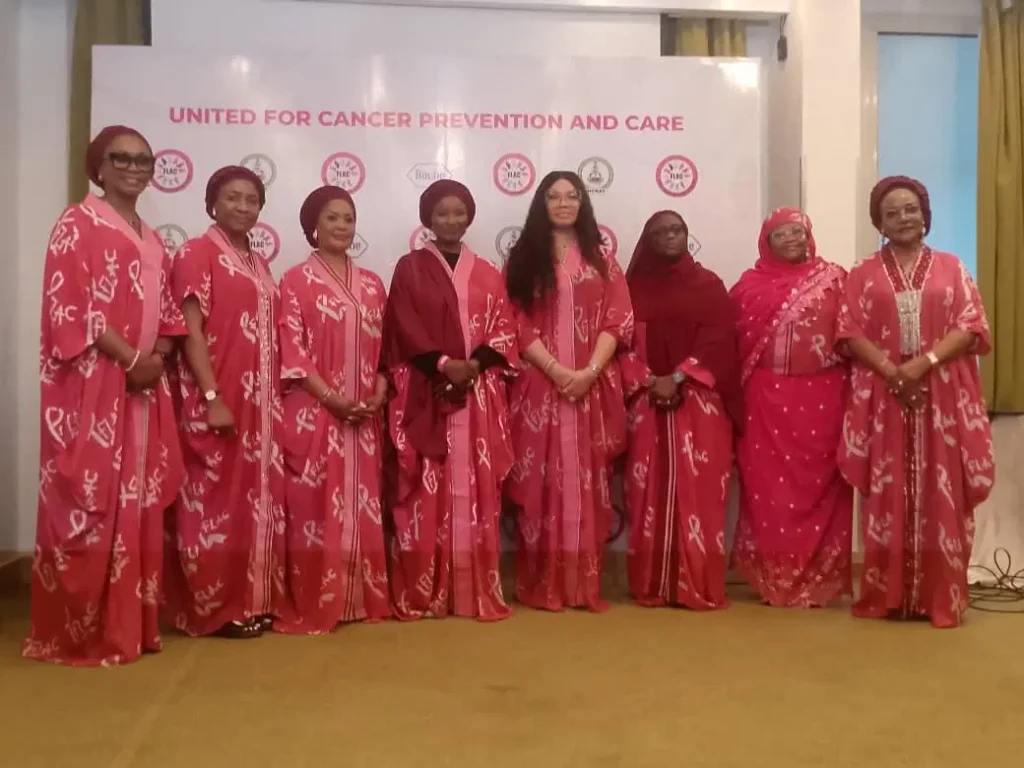
Source: Chioma Obinna

In a significant move to bolster Nigeria’s fight against cancer, the First Ladies Against Cancer (FLAC) has signed a Memorandum of Understanding (MoU) with the National Institute for Cancer Research and Treatment (NICRAT) and global health company Roche.
The MoU, signed under the leadership of Dr. Zainab Shinkafi Bagudu, outgoing FLAC Chairperson and former First Lady of Kebbi State, aims to strengthen national efforts in cancer research, prevention, and treatment—with a clear emphasis on sustainability and long-term impact.
“The idea behind signing this MoU with NICRAT is to ensure that the work FLAC does is sustainable, evidence-based, and supports the progress of cancer control, easing the burden for patients in Nigeria,” Bagudu stated.
Cancer remains a leading cause of death in Nigeria, with thousands of lives lost yearly due to late diagnosis, limited access to care, and inadequate infrastructure.
Dr. Bagudu emphasized the importance of federal leadership and private-sector collaboration, calling on the government and stakeholders to increase funding, awareness campaigns, and early detection efforts.
She also acknowledged the leadership of Nigeria’s First Lady, Senator Oluremi Tinubu, for launching the Partnership Against Cervical Cancer Elimination, a national initiative focused on one of the most preventable but deadly forms of cancer affecting women.
Formed to create a united front of Nigerian First Ladies committed to the cancer fight, FLAC has played a pivotal role in:
With this MoU, FLAC, NICRAT, and Roche will focus on:
This agreement sets the stage for a model collaboration between public institutions and the private sector. By aligning technical support, policy, and infrastructure development, stakeholders hope to reduce Nigeria’s cancer burden and create a more resilient oncology system.
Dr. Bagudu concluded with a call to action: